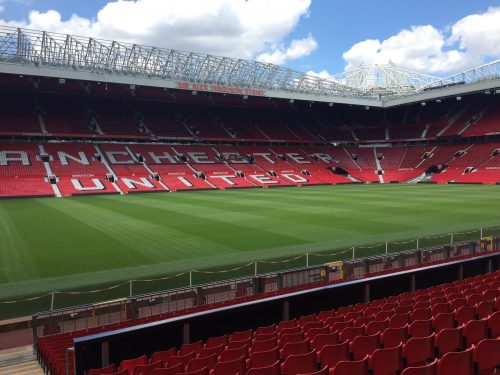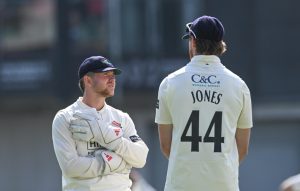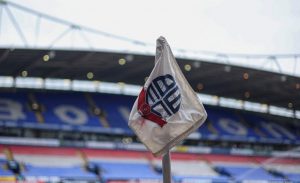Manchester United achieves record annual revenues, but posts huge pre-tax loss

Manchester United achieved record annual revenues of £661.755m in the year to June 30, 2024, it revealed today, driven by record commercial and matchday revenues.
That compares with £648.401m the previous year.
The loss before tax was an eye-watering £130.724m, compared with £32.574m in 2023, but the club insists it is within the permitted Premier League and UEFA financial rules.
The bigger loss is due to investment in the club’s football and training infrastructure, and a new leadership team and player investments.
Beginning in the third quarter of fiscal 2024, the club commenced a business transformation plan to unlock operational efficiency with the ultimate goal of improving the club’s financial sustainability and maximise the resources available to improve football operations.
These initiatives included installing a new executive leadership team covering both the business and sporting side, streamlining the organisational structure and, following a thorough cost review by Interpath Advisory, the club implemented a significant cost rationalisation programme.
In January 2024, the club announced the appointment of new CEO Omar Berrada and a new football leadership team was installed under his leadership, creating a new reporting structure with seasoned football leaders, Dan Ashworth and Jason Wilcox.
Additional club executive leadership was also appointed in April, and the new non-football structure will be supported by a more streamlined organisation. Beginning in March 2024, the club engaged Interpath Advisory for a thorough club-wide cost review which identified substantial cost-savings.
As a result of this change in strategy and with the intention of creating a leaner, agile and more sustainable structure, the club subsequently announced an employee redundancy program in July 2024, which was concluded at the end of August 2024 and resulted in the rationalisation of the club’s employee base by approximately 250 roles across all departments.
In total, the club expects to realise annualised cost savings of approximately £40m to £45m, before redundancy implementation costs of £10m. Due to timing and other contractual obligations, the club expects to realise these savings over fiscal years 2025 and 2026.
Chief executive, Omar Berrada, said: “It has been a busy off-season for the club with successful training camps for both our men’s and women’s teams.
“We have strengthened our men’s first team with five exciting players and put a new football leadership structure in place to provide greater support to our manager, Erik ten Hag.
“Dan Ashworth was appointed Sporting Director and Jason Wilcox joined us as Technical Director, two extremely experienced and highly respected professionals who will add great depth to our team.
“We have added six players to our women’s team and are investing to ensure all of our teams have access to world-class training facilities at a fully renovated Carrington.
“We are also delighted to have extended our Principal Partnership with Snapdragon, after an excellent start, for a further two years in addition to the initial three-year term.”
He added: “As I embark on my new role as Chief Executive Officer of this historic club, we are all extremely focused on working collectively to create a bright future with football success at the heart of it.
“We are working towards greater financial sustainability and making changes to our operations to make them more efficient, to ensure we are directing our resources to enhancing on-pitch performance.
“Today, we announce new guidance for fiscal 2025 which reflects a partial year impact of the transformative cost-savings and organisational changes that we have been busy implementing over the summer.
“Ultimately, the strength of Manchester United is driven by the passion and loyalty of our supporters. Our clear objective is to return the club to the top of European football.
“Everyone at the club is aligned on a clear strategy to deliver sustained success both on and off the pitch, for the ultimate benefit of our fans, shareholders, and hugely diverse range of stakeholders.”
For fiscal 2025, the club is introducing new full year revenue guidance of £650m to £670m and new adjusted EBITDA guidance of £145m to £160m, while exceptional costs related to severance charges associated with the headcount reduction programme are expected to total approximately £10m.
For the full year fiscal, 2025, the club currently anticipates non-player capital expenditures to total approximately £60m and includes the upgrade of the main players’ building at the Carrington Training Centre, which is on plan to be completed by the end of the 2024/25 season and is intended to enhance the performance environment.
In March 2024, the club led the creation of the Old Trafford Regeneration Task Force to explore options for the revitalisation of the Old Trafford area in Greater Manchester. The task force has since convened for four meetings and all options continue to be vetted as the Task Force continues to seek input and feedback from all key stakeholders.
The club said it remains committed to, and in compliance with, both the Premier League’s Profit and Sustainability Rules and UEFA’s Financial Fair Play Regulations.
Commercial revenue for the year was £302.9m in line with commercial revenue of £302.9m in the prior year Sponsorship revenue was £177.8m, a decrease of £11.7m, or 6.2%, over the prior year, primarily due to a one-off sponsorship credit in the prior year.
Retail, Merchandising, Apparel & Product Licensing revenue was £125.1m, an increase of £11.7m, or 10.3%, over the prior year, primarily due to the extension of the agreement with club kit supplier adidas and record fiscal year revenue performance of the Megastore, which improved eight per cent over the prior year.
Broadcasting revenue for the year was £221.8m, an increase of £12.7m, or 6.1%, over the prior year, due to the men’s first team participating in the UEFA Champions League compared with the UEFA Europa League in the prior year.
This is partially offset by the men’s first team being eliminated in the group stage of the UEFA Champions League and finishing eighth in the Premier League in the current year, compared with reaching the Quarter-finals of the UEFA Europa League and finishing third in the Premier League in the prior year.
Matchday revenue for the year was £137.1m, an increase of £0.7m, or 0.5%, over the prior year, due to strong demand for hospitality offers, mostly offset by the men’s first team playing eight fewer home matches in the current year.
Employee benefit expenses for the year, or player wages and bonuses, were £364.7m, an increase of £33.3m, or 10%, over the prior year, primarily as a result of the men’s first team participating in the UEFA Champions League in the current year compared with the UEFA Europa League in the prior year.
Exceptional items for the year were a cost of £47.8m. This primarily comprises of costs incurred in relation to the sale of 27.7% of the group’s voting rights to Trawlers Limited, an entity wholly owned by Sir Jim Ratcliffe, including transactions fees payable on completion and compensation for loss of office.The charge also includes additional contributions the club expects to pay towards the Football League pension scheme deficit based on the latest actuarial valuation. Exceptional items in the prior year were nil.
Non-current borrowings were £511m, compared with £507.3m at the prior year end.
In addition to non-current borrowings, the group maintains a revolving credit facility which varies based on seasonal flow of funds. Current borrowings, including accrued interest, at June 30, 2024, were £35.6m compared with £106m a year ago.
As of June 30, 2024, cash and cash equivalents were £73.5m compared with £76m at the prior year end.
Danni Hewson, head of financial analysis at Manchester investment platform, AJ Bell, said: “The run of bad form continues for Manchester United, which has notched up another chunky loss off the pitch.
“The club hasn’t been profitable since 2019 and (net) losses widened to £113m for the year ending 30th June.
“Fans want to see the kind of investment that’s been made in the playing squad this year and if it can generate a return to winning ways investors are likely to be mollified, especially with a host of cost cutting measures being undertaken by the team in charge.
“But pledges that the club is working to become more ‘financially sustainable’ will come under scrutiny by the Premier League.
“It’s got clear rules but there are certain loopholes like investing in youth development which could keep the club onside.
“Turnaround plans have legs only if they can deliver results and the clock is ticking.”








